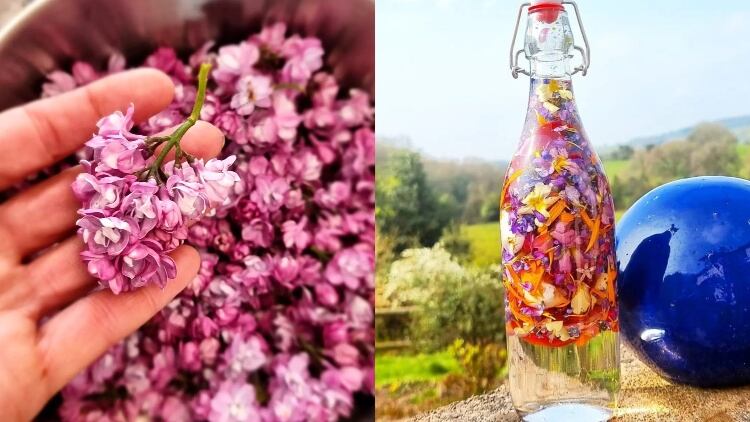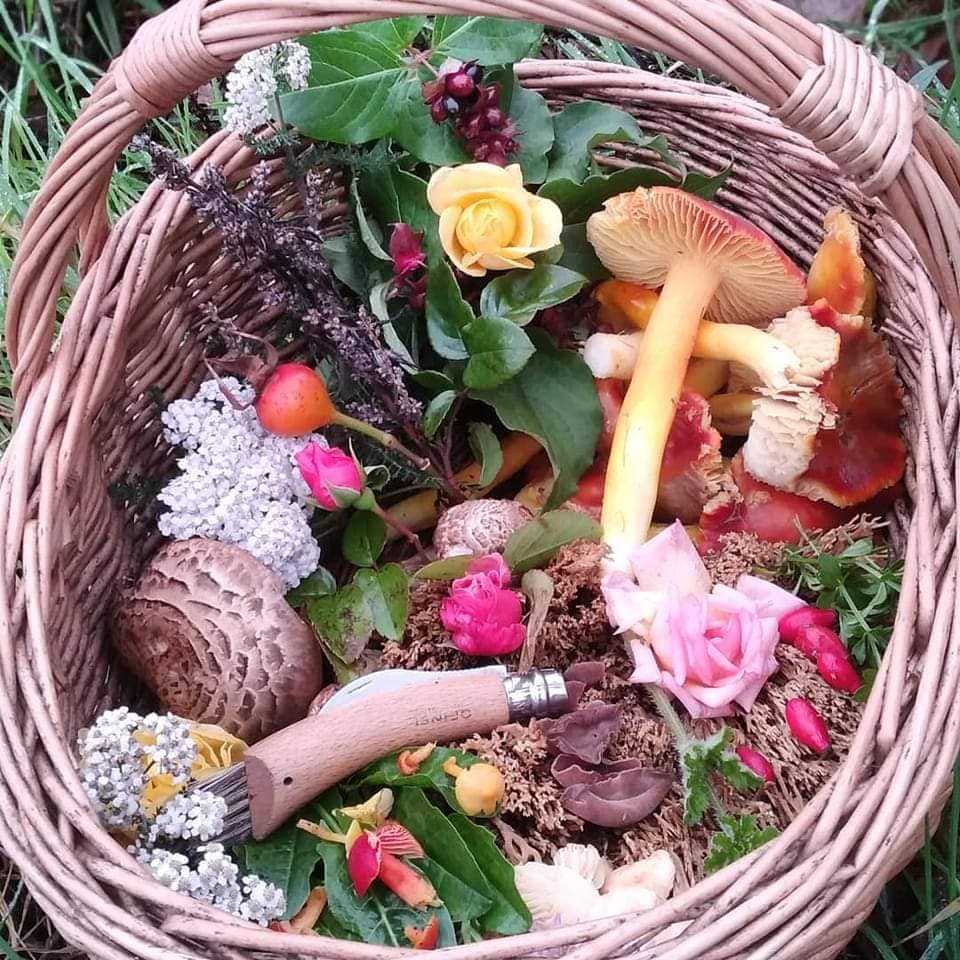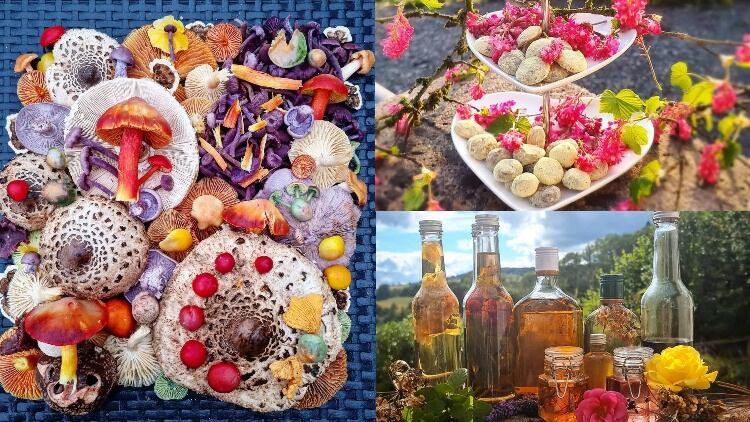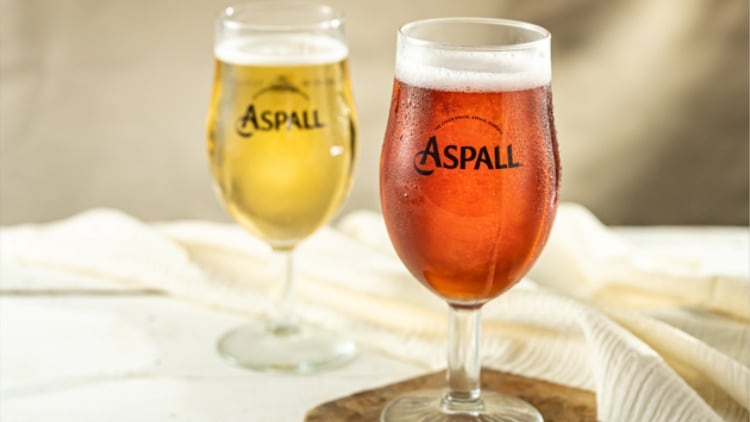One of the key takeaways of foraging, according to Urban Forage's professional forager Christian Amys, who previously worked as a chef, were the mental health benefits.
He said: “I always say to my clients, the best benefit from foraging is the therapy.
“When you are out walking in nature it is really calming and a really good way to unwind.
“I really struggled with my mental health as a chef and when I started foraging professionally, it completely changed my mental health.
“If you're a chef and you've got an hour or two-hour break in the afternoon, what better way [to spend it] than to go out and pick some vegetables for your meals, and at the same time it's just going to completely unwind you from all that kitchen stress.”

Cardiff-based bar Lab 22 head bartender, Max Hayward, echoed this, adding while foraging might not be for everyone, making the time to do it can be “beneficial” to businesses looking to try new things as well as supporting workers mental health.
He said: “If you can go and get [the ingredients] yourself, it's a lovely excuse to get out and go for a nice walk no, which is especially important in this industry.
“[Foraging] is something that, if possible, it is good to make time for [to help] the mental wellbeing of your staff; take a little trip out with a few of the staff and have a walk and get some stuff, it’s good for your mental health.
“We've got an arsenal of alcohol brands, we've got loads of stuff in shops, markets, etc. but [foraging offers] this largely untapped mine of cool and interesting things.
“For a lot of bartenders, like me, the favourite part of the job is the creativity, it's a way of self-expression.
“[With foraging], you get all of this wonderful new stuff to play with, taste something new, and think ‘that will go amazing with Amaretto or rum’, for example.”
Saving money
While Josh Linfitt, Bar manager at Adam Handling’s Ugly Butterfly restaurant and bar in St Ives, Cornwall, explained getting to know your products and local environment better was another benefit to foraging.
He said: “It promotes what you have to offer wherever you live. It also influences you and inspires you to create something.
“For example, a little while back we had a wonderful cocktail on our menu, which had local samphire cooked in unsalted butter and then washed in Tequila to create a really nice twist on a Margarita.
“Taking the natural green [flavours] inside that samphire, it made sense to partner it with agave like Tequila or mezcal, because that richness really brings out the natural sweetness within Tequila.
“We want to boost boast flavours that are already there in drinks that we know taste good but utilising the Cornish coastline.”
Not only this, but foraging can also have a positive impact on your venues carbon footprint.
Linfitt continued: “Let’s look at Nasturtium leaves, for instance. In most restaurants you see Nasturtium leaves placed on bits of fish; they grow in my garden, my car park, they’re everywhere.
“They are around £3.94 for a punnet, but that punnet is made of out of plastic, which is guaranteed not to be recycled.
“That one leaf is costing you money, picked by somebody else probably in a different country and delivered to you by car.
“Plants are nothing to be afraid of, we eat them every day and most potent medicines mostly come from plants."
“Whereas [in most places] you can literally walk out the front door, pick it, wash it and eat it. So, you're definitely saving money, but also making something a bit more sustainable.
“[Sustainable] is a word that gets thrown around quite frivolously, but when we're working towards zero waste, it’s not just the food and drinks, you got to think about what it comes in as well as how it gets to you.”
However, you need to “know what you are doing” and read up on the rules to enable safe foraging as well as protecting and supporting the environment.
Diving in
“There are loads of books out there [and] the internet is obviously fantastic, but you need to make sure you’re reading from the right people.
“Luckily, when it comes to foraging, there are relatively trustworthy sources that you can find.
“But I would highly advise meeting with a local forager. They know exactly what they have been doing, they’ve been doing it for years”, Linfitt added.
Professional forager, Chloe Newcomb Hodgetts of Gourmet Gatherings, also urged operators to research the art of foraging, and the laws surrounding it, before diving in.
She seconded the best way to get to know the basics was to go out with a local forager across different seasons, but any research would be beneficial, she added.
Hodgetts said: “Plants are nothing to be afraid of, we eat them every day and most potent medicines mostly come from plants.
“However, foraging for a novice does need to be approached with respect and caution; you need to be 100% sure before you put anything in your mouth.
“There's really no better way than by getting out [with a professional forager] and learning leaf shapes, learning what they look like, how and where they grow.”
Not only is it important to research and ensure what you are picking are not “poisonous look-a-likes”, foraging sustainably is also key.
Hodgetts continued: “It's incredibly important to be a responsible, mindful and sustainable forager.
“When you do find something that you want to harvest, and you're 100% sure it is that, only harvest from an area where it's growing abundantly and prolifically.
“Always leave enough for other people to forage but most importantly for it to play its role in nature.
“For example, when it comes to mushrooming, I will only ever take about 30% of what's there. That does vary slightly with species, but you want to be leaving enough for it to play its fundamental role in nature.”
Educating yourself
In addition to the rules and etiquettes to consider when foraging, there are also certain laws in place.
Hodgetts explained: “Anybody can pick a handful of something for lunch or dinner off public lands, such as your local parkland or your woodland.
“However, the law is that to forage for commercial gain, you have to forage on private property that you have permission to forage on.
“If you're planning on, for example, harvesting some salt marsh herbs to use as a garnish or in a cocktail recipe, you have to tread very carefully.

“It's about educating yourself, so you know what you're picking and then picking sustainably, mindfully and responsibly.”
For Julien Barnett from Gung Ho!, foraging in the UK provides a varied flavour palette to explore, from berries or rhubarb that can be used in a multitude of drinks offerings to wild garlic that goes great in pesto or broths.
He said: “It’s always good to think outside the box.
“Using local ingredients and flavours and what’s currently out there, using the resources that are naturally around us could mean you have some very interesting and unique creations.”
In addition, Barnett stated foraged ingredients typically offer “way more flavour” as well as being more sustainable, adding value to recipes, be it in the kitchen or bar.
He said: “The scope is pretty much unlimited. There's a lot of techniques we take from the kitchen that are translated to the bar these days.
“If you start off with easier ingredients, like flowers, they make really great cordials, berries as well as super easy to make anything.
Flavour hacking
“Savoury ingredients are quite difficult to translate into cocktails, they tend to make better broths, but with a bit of flavour hacking you could look into doing a savoury martini with wild garlic where you would you basically cook down wild garlic into a broth and add vodka or gin; very tasty.
“We'll probably release a cocktail with pea shoots soon. We'll make a very light cordial with the pea shoots and a bit of sea salt, then put that in a cream whipper to make a slightly sweet, very fresh, grassy tasting foam that would sit on top of a cocktail with elderflower and some sour juices.”
“When people come and see all these mad ingredients, they want to try them, why wouldn't they?"
Barnett continued while working with foraged ingredients can be a “challenge”, it is “really fun” and that some of the bars best recipes have previously been created “off piste”.
He added: “When people come and see all these mad ingredients, they want to try them, why wouldn't they?
“At the moment we’ve got a few things we have preserved over the last year. We’ve got loads of raspberry leaves.
“When raspberries were picked at the end of the season, we took some of the excess leaves and dried them, creating an almost green tea type of flavour, so we’ve got a cocktail with not raspberries, but the leaf of the plant, and people want to try it.”
Barnett concluded by using responsibly foraged ingredients, operators can support the environment, local wildlife and local businesses.
He added: “Foraging is a really cool way of representing local produce and letting people know what's out there, as well as elevating what you do and upping creativity.”





